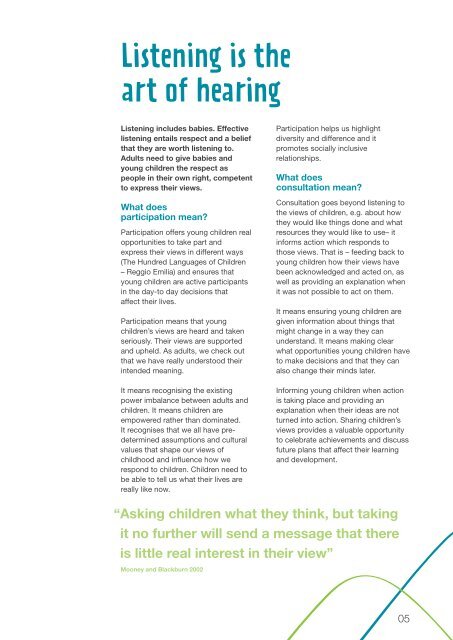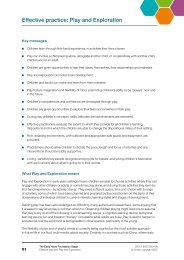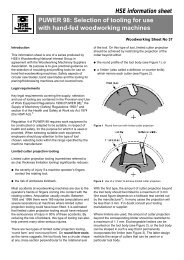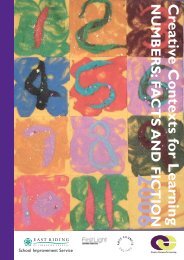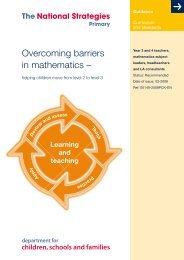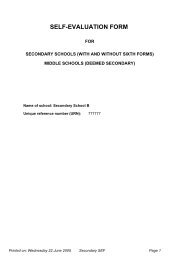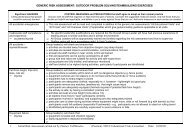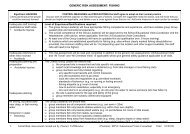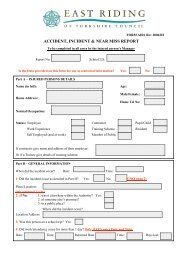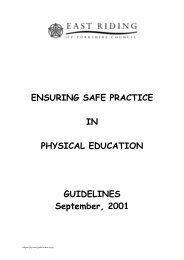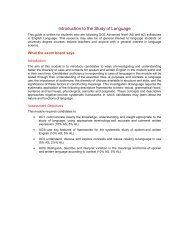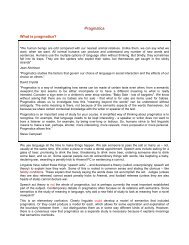Listening to Young Children - Northamptonshire County Council
Listening to Young Children - Northamptonshire County Council
Listening to Young Children - Northamptonshire County Council
Create successful ePaper yourself
Turn your PDF publications into a flip-book with our unique Google optimized e-Paper software.
<strong>Listening</strong> is the<br />
art of hearing<br />
<strong>Listening</strong> includes babies. Effective<br />
listening entails respect and a belief<br />
that they are worth listening <strong>to</strong>.<br />
Adults need <strong>to</strong> give babies and<br />
young children the respect as<br />
people in their own right, competent<br />
<strong>to</strong> express their views.<br />
What does<br />
participation mean?<br />
Participation offers young children real<br />
opportunities <strong>to</strong> take part and<br />
express their views in different ways<br />
(The Hundred Languages of <strong>Children</strong><br />
– Reggio Emilia) and ensures that<br />
young children are active participants<br />
in the day-<strong>to</strong> day decisions that<br />
affect their lives.<br />
Participation means that young<br />
children’s views are heard and taken<br />
seriously. Their views are supported<br />
and upheld. As adults, we check out<br />
that we have really unders<strong>to</strong>od their<br />
intended meaning.<br />
It means recognising the existing<br />
power imbalance between adults and<br />
children. It means children are<br />
empowered rather than dominated.<br />
It recognises that we all have predetermined<br />
assumptions and cultural<br />
values that shape our views of<br />
childhood and influence how we<br />
respond <strong>to</strong> children. <strong>Children</strong> need <strong>to</strong><br />
be able <strong>to</strong> tell us what their lives are<br />
really like now.<br />
Participation helps us highlight<br />
diversity and difference and it<br />
promotes socially inclusive<br />
relationships.<br />
What does<br />
consultation mean?<br />
Consultation goes beyond listening <strong>to</strong><br />
the views of children, e.g. about how<br />
they would like things done and what<br />
resources they would like <strong>to</strong> use– it<br />
informs action which responds <strong>to</strong><br />
those views. That is – feeding back <strong>to</strong><br />
young children how their views have<br />
been acknowledged and acted on, as<br />
well as providing an explanation when<br />
it was not possible <strong>to</strong> act on them.<br />
It means ensuring young children are<br />
given information about things that<br />
might change in a way they can<br />
understand. It means making clear<br />
what opportunities young children have<br />
<strong>to</strong> make decisions and that they can<br />
also change their minds later.<br />
Informing young children when action<br />
is taking place and providing an<br />
explanation when their ideas are not<br />
turned in<strong>to</strong> action. Sharing children’s<br />
views provides a valuable opportunity<br />
<strong>to</strong> celebrate achievements and discuss<br />
future plans that affect their learning<br />
and development.<br />
“Asking children what they think, but taking<br />
it no further will send a message that there<br />
is little real interest in their view”<br />
Mooney and Blackburn 2002<br />
05


